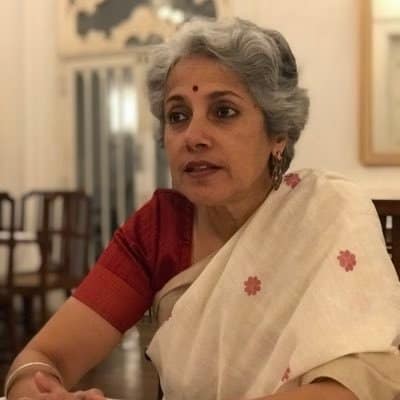North East

Geneva: A Covid-19 variant spreading in India is extra contagious and could also be dodging vaccine protections, contributing to the nation’s explosive outbreak, the World Health Organization‘s (WHO) Chief scientist stated Saturday.
In an interview with AFP, WHO Chief Scientist Soumya Swaminathan warned that “the epidemiological options that we see in India immediately do point out that it is an especially quickly spreading variant”.
India on Saturday for the primary time registered greater than 4,000 Covid-19 deaths in simply 24 hours, and greater than 400,000 new infections.
ALSO READ: Gauhati University: All Exams to be conducted through “Open Book System”
New Delhi has struggled to comprise the outbreak, which has overwhelmed its healthcare system, and lots of consultants suspect the official dying and case numbers are a gross underestimate.
Swaminathan, an Indian Paediatrician and Medical Scientist, stated the B.1.617 variant of Covid-19, which was first detected in India final October, was clearly a contributing issue to the disaster unfolding in her homeland.
“There have been many accelerators which are fed into this,” the 62-year-old stated, stressing that “Extra quickly spreading virus is certainly one of them.”
ALSO READ: Covid-19: SC forms NTF for transparent Oxygen allocation to the States
The WHO lately listed B.1.617 — which counts a number of sub-lineages with barely completely different mutations and traits — as a “variant of interest.”
However, to this point it has stopped in need of including it to its brief checklist of “variant of concern” — a label indicating it’s extra harmful than the unique model of the virus by being extra transmissible, lethal or capable of get previous vaccine protections.
A number of nationwide well being authorities, together with in America and Britain, have in the meantime mentioned they contemplate B.1.617 a variant of concern, and Swaminathan mentioned she anticipated the WHO to quickly comply with go well with.
ALSO READ: Around 80 staff members of a Delhi hospital tested positive for Covid19
“B 1.617 is likely to be a variant of concern because it has some mutations which increase transmission, and which also potentially could make it resistant to antibodies that are generated by vaccination or by natural infection,” she stated.
But she insisted that the variant alone couldn’t be blamed for the dramatic spike in instances and deaths seen in India, lamenting that the nation appeared to have let down its guard down, with “huge social mixing and large gatherings”.
Mass election rallies held by Prime Minister Narendra Modi and different politicians have for example partly been blamed for the staggering rise in infections.
ALSO READ: Announcing the new Chief Minister of Assam: Dr. Himanta Biswa Sarma
However at the same time as many in India felt the pandemic was over, dropping mask-wearing and different safety measures, the virus is quickly spreading.
“In a large country like India, you could have transmission at low levels, which is what happened for many months,” Swaminathan stated.
“It was endemic and most likely progressively growing,” she mentioned, decrying that “these early indicators have been missed till it reached the purpose at which it was taking off vertically.”
ALSO READ: Government grants Rs 8,923.8 cr to the Rural Local Bodies: Covid relief
“At that point it’s very hard to suppress, because it’s then involving tens of thousands of people and it’s multiplying at a rate at which it’s very difficult to stop.” Swaminathan added.
While India is now making an attempt to cope up with vaccination to rein within the outbreak, Swaminathan warned that the shots alone wouldn’t be sufficient to achieve management of the scenario.
She identified that India, the world’s largest vaccine-making nation, had not fully vaccinated around two per cent of the 1.3 billion-plus inhabitants.
ALSO READ: Remnants of China’s Long March 5B rocket land in Indian Ocean near the Maldives
Swaminathan stressed “If the vaccination progress continues this way it will take many months if not years to get to the point of 70 to 80 percent coverage.”
With that prospect, Swaminathan stated that “for the foreseeable future, we need to depend on our tried and tested public health and social measures” to deliver down transmission.
The surge in India is horrifying not solely because of the horrifying variety of people who find themselves sick and dying there, but additionally as a result of the exploding infection numbers dramatically increase the chance of new and extra harmful variants rising.
“The extra the virus is replicating and spreading and transmitting, the extra likelihood is that… mutations will develop and adapt,” Swaminathan added.
ALSO READ: No Wedding Ceremonies till May 17 due to covid surge
Swaminathan warned that variants which accumulate a lot of mutations may ultimately become resistant to the current vaccines that we have.
“That’s going to be a problem for the whole world.” Swaminathan added.
Leave A Comment